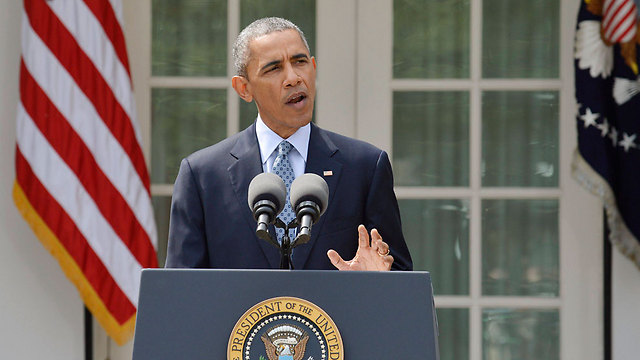There is one worrying question that remains unanswered from the Israeli response to the agreement reached in Lausanne last weekend. What is Benjamin Netanyahu really trying to achieve?
Israel now has essentially two options left: To keep up the conflict with the Obama administration in an effort to recruit Congress to scupper the agreement, or start a new dialogue with the White House to make the most of the work by international inspectors and heighten the possibility of punishment should Iran go back on its obligations.
In the meantime, we have heard a lot of talk in Jerusalem, but no action. A series of tough statements from Netanyahu in recent days opposing the Lausanne agreement have now been joined by a new demand for Iranian recognition of Israel.
The more new details are revealed about the negotiations between Iran and the world powers, the more we can point to some basic assumptions that in Israel will only add to the existing doubts about the agreement.
Firstly, Iran will not have to dismantle its research infrastructure or its nuclear development. Secondly, some of the sanctions will probably be gradually removed in the near future. And thirdly, after more than 35 years of total disconnect between the two countries, Washington and Tehran will keep up their dialogue and probably deepen their commercial, cultural and political ties.
In other words, Obama is on his way to being remembered as the American president who spearheaded a dramatic change in America's foreign relations.
So where does this leave Israel? Firstly, we must admit that Netanyahu's contrarian stance and constant provocation of the Obama administration were a resounding failure – so much so that any other country in the world would probably demand that the legislature carry out a thorough investigation. After all, at the beginning of Netanyahu's premiership, Iran had hundreds of centrifuges; now it has some 19,000.
The agreement with Iran has taught our decision-makers an important lesson: Israel, after all, is a small country that continues to be dependent on the world's only superpower - the United States.
And so, from now on it would be more advisable to dial down the combative - and on occasion apocalyptic - statements about imminent regional destruction and instead engage in a series of prudent diplomatic steps to ensure that the White House goes back to giving us a sympathetic ear.
The last few months have taught us that any Netanyahu speeches about the Holocaust in the context of Iran simply do not make any impression on the rest of the world.
The White House on Wednesday held its annual traditional seder, where it was asked, "What has changed?" Well, what has changed this weekend is that unless we internalize what happened in Lausanne, we will find ourselves on the outside of a new international order that Obama and many of his colleagues in the West have already begun to put together.


















